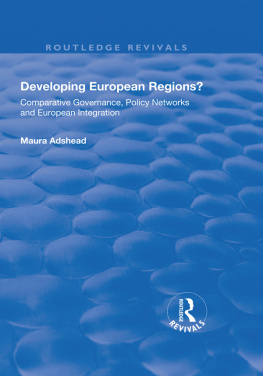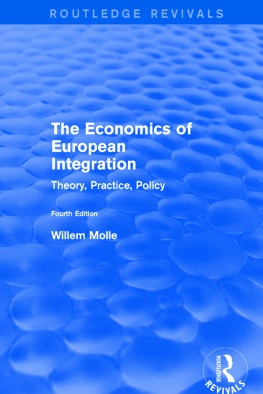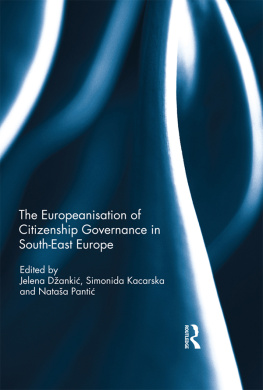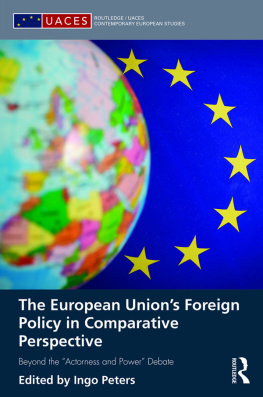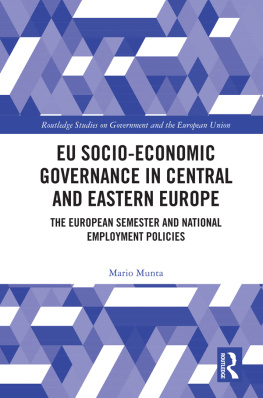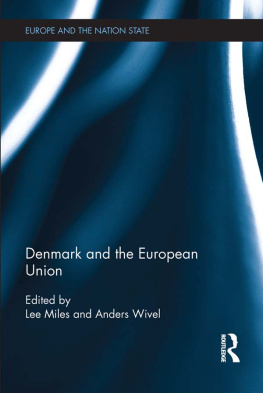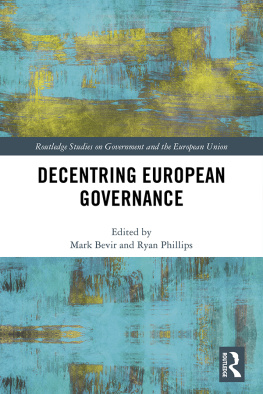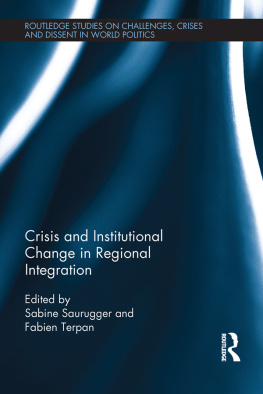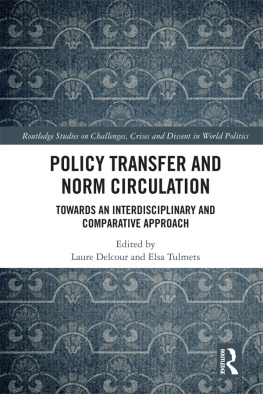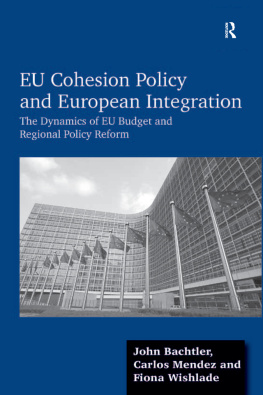Developing European Regions?
Comparative Governance, Policy Networks and European Integration
MAURA ADSHEAD
University of Limerick
First published 2002 by Ashgate Publishing
Reissued 2018 by Routledge
2 Park Square, Milton Park, Abingdon, Oxon OX14 4RN
711 Third Avenue, New York, NY 10017, USA
Routledge is an imprint of the Taylor & Francis Group, an informa business
Copyright Maura Adshead 2002
The author has asserted her moral right under the Copyright, Designs and Patents Act, 1988, to be identified as the author of this work.
All rights reserved. No part of this book may be reprinted or reproduced or utilised in any form or by any electronic, mechanical, or other means, now known or hereafter invented, including photocopying and recording, or in any information storage or retrieval system, without permission in writing from the publishers.
Notice:
Product or corporate names may be trademarks or registered trademarks, and are used only for identification and explanation without intent to infringe.
Publisher's Note
The publisher has gone to great lengths to ensure the quality of this reprint but points out that some imperfections in the original copies may be apparent.
Disclaimer
The publisher has made every effort to trace copyright holders and welcomes correspondence from those they have been unable to contact.
A Library of Congress record exists under LC control number: 2001099225
ISBN 13: 978-1-138-73925-3 (hbk)
ISBN 13: 978-1-315-18421-0 (ebk)
The best thing about writing a book is the opportunity it affords to publicly acknowledge the help and support of all the people who contributed to its completion. At the outset, Brigid Laffan provided practical support and encouragement towards the doctoral work that forms the basis of this book. Thereafter, I worked up a series of debts in Britain, Ireland and Germany. A generous studentship from the University of Liverpool, together with grants from the Royal Irish Academy, the British Council and the German Academic Exchange Service (DAAD) ensured that none of these debts were financial. In Ireland, Nick Rees and Brid Quinn from the University of Limerick shared information, interviews and obscure references. Eddie Glacken of the Irish Trade Union Trust was extremely helpful in setting up interviews with the 'great and the good' in Dublin and all for no reward. Especial thanks to Joe and Joan O'Kelly who helped me out no end by securing my Irish accommodation and to John Logan, who bent over backwards to secure me time to finish this book. In Germany, Susan Morrissey and Hubertas Jahn, on nothing but the most tenuous of connections, fed and found me, helped with tricky translations, gave of their fax, email and time (and most important of all, their cheese). Rainer Heck and Claudia Rauschen offered more technical support and a refreshing Kur whenever it was needed. Andrea Terstappen helped to arrange interviews and gave me the secret for the best Frikadellen . Herr and Frau Karl Heinz-Fabig made me so welcome, so often, in their guest house, that it began to feel like a second home. In Britain, Sahra Ryklief showed me all the good places to eat and drink in Liverpool (which is much harder than you might think). David and Antonia Phinnemore shared their home, a passion for 'funny beer' and fresh bagels with the newspapers every Sunday. Helen and Jim Leslie looked after me in Dundee and Daniel O'Kelly was especially helpful in organizing the transport for all of my interviews. Finally, as is the tradition with these things, I leave the biggest 'thank-you's and the greatest debts of gratitude to the last. Thank-you to mum and dad for enthusiastic support throughout this study. Thank-you to Stephen Padgett (and Maria too) for offering me a scholarship in Liverpool and for putting up with me thereafter. Last, but by no means least, thank-you to Neil Robinson for all good stuff. It's hard to know what to give to a man to whom you've given more or less everything already but surely a book on European regions will make your life complete.
Chapter 1
The Re-ordering of Governance and European Integration: A Framework for Analysis
Introduction
Across Europe, the process of policy change has been beset by developments along two dimensions. The first, or vertical dimension, refers to the shifting levels of policy authority and influence between international, national, regional and even local levels of government or administration. The second, or horizontal dimension, refers to the shifting competencies of policy actors and agencies arising as a consequence of new interpretations of government's role in the organization and administration of public policy. The so-called 'Europeanization' of state policy processes, associated with the increasing involvement of the EU in domestic policy is central to both dimensions of policy change. The transnational policy cooperation encouraged and facilitated by the European Union policy making framework, combined with EU initiatives to increase its accountability and legitimacy through direct cooperation with policy partners at national, regional and local levels not only raises important questions about the shifting levels of policy authority, but also about the changing configuration of key policy making actors and agencies at each level.
Whilst the significance of European integration to the process of policy change is widely accepted, there is still no commonly accepted methodology with which to approach empirical study. Cross-national differences in the policy environment are reflected in variations in the way European integration impacts on policy at domestic level, creating problems for comparative analysis. This research employs a distinctive methodology designed to overcome some of the problems associated with cross-national comparison. Using policy network analysis as a neutral heuristic device to provide comparative characterizations of cross-national policy making processes, the methodology provides a framework to evaluate propositions from the literature on multi-level governance about the shifting levels of policy authority and changing configuration of policy actors assumed to be part or the integration process.
Since the multi-level governance literature provides no concrete expectations about the precise working out of its generalized propositions about the process of European integration, this research methodology applies neofunctionalist expectations about the effects of European integration on the networks of actors involved in the policy process. Assuming that the presence of mufti-level governance correlates with the process of European integration, it uses Lindberg's (1963:6) definition of integration to outline the process by which multi-level governance emerges in different policy networks. It hypothesises Lindberg's four integration propositions as evidence of positive integration in policy networks and assumes that the higher the incidence of positive integration indicators, the higher the level of integration (or, more precisely, the extent of multi-level governance) between policy actors and institutions in the network.
The capacity of Lindberg's neofunctionalist integration theory to explain change in policy networks occurring as a consequence of EU involvement in policy lies in the clarity with which it defines the integration process. For Lindberg, the process of European integration has four main dimensions. First, it concerns the institutional development that accompanies EU involvement in the policy process. A second dimension is the re-orientation of elite behaviour and attitudes towards the EU. A third expectation is that national governments should demonstrate increasing support for EU involvement in policy. Finally, Lindberg's main legacy is the concept of functional and political spillover. These propositions are modified for use with policy network analysis in order to determine the extent of European integration in selected regional policy networks.

